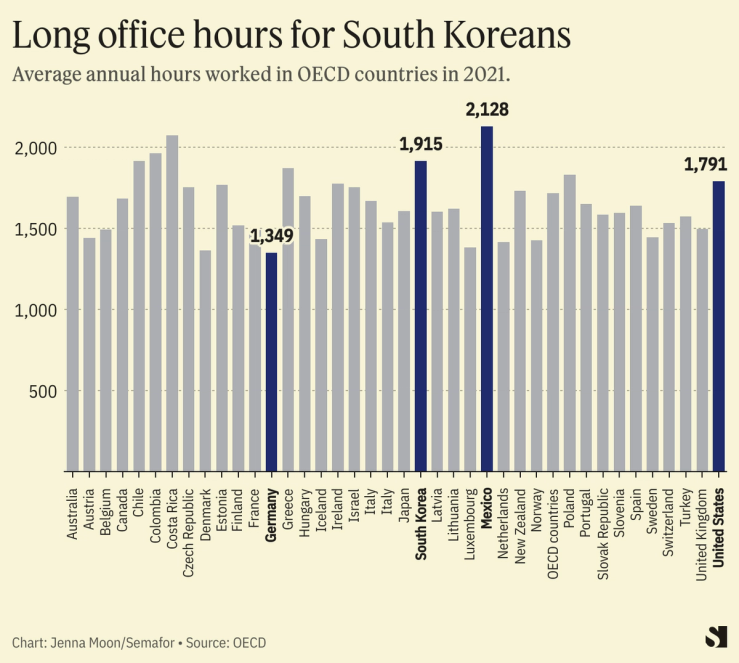The News
South Korea is considering extending working hours at a time when countries such as the U.S. and Australia mull moving in the opposite direction with a four-day work week.
The South Korean labor ministry has proposed extending work hours to a maximum of 69-hours per week, a rise from its current maximum of 52 hours. The change would allow companies to ask employees to work longer hours during busy periods, and claim back vacation time later in the year.
In this article:
Know More
South Korea’s usual work week is 40 hours, with up to 12 hours of additional overtime permitted. The new law would increase that to up to 29 hours of overtime, The Korea Times reported.
On Tuesday South Korean President Yoon Suk Yeul ordered a review of the proposal, following widespread backlash from opposition leaders, employees, and other critics of the proposal who fear the extra overtime allowance would just mean more work, with no guarantees of extra vacation.
The proposal has also prompted criticism from young South Koreans, who see the extension as a step back from gains the country previously made on a better work-life balance.

South Korea has among the highest work-hour averages within OECD countries, and as of 2021 recorded an average of 1,915 work hours, compared to 1,607 on average in Japan.
Step Back
South Korea has one of the lowest fertility rates in the world, at 0.78, the lowest rate since 1970. In 2021 the country’s population shrank for the first time, and the reduction in how many babies are born has been blamed, in part, on the country’s work culture, as many women choose between the demands of their career or raising a family.
Park Yong Jin, a member of the opposition Democratic Party, called the work-week extension “a shortcut to population extinction.”
The View From the U.S.
As South Korea looks at increasing work hours, a bill introduced in the U.S. hopes to do the opposite, offering employees a four-day week and a 20% reduction in the number of hours worked each week.
Rep. Mark Takano, D-Calif., said Americans “have before us the opportunity to make common sense changes to work standards passed down from a different era,” Semafor’s Joseph Zeballos-Roig reported earlier this month.
Labor groups have embraced the idea, though it faces some opposition from employers who believe the scaled-down week would force more stress on workers who need to catch up after an extra day off.

